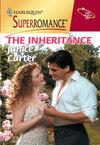Buch lesen: «Her Kind Of Hero»
He saved her life...
But he’s not the hero she expects
Dana Sothern has finally found the man who rescued her as a teen. But when she tries to thank Matt Rodriguez, instead he challenges her to volunteer at his youth camp. The experience brings Matt and Dana closer. But away from the camp, the reformed bad boy’s and the corporate lawyer’s worlds are far apart. Can they bridge the gap between them?
Writing has been a passion for JANICE CARTER from a young age, but her “second” career after teaching didn’t officially start until she took a romance-writing course at a local community college. The story she began then became her debut novel, a Mills & Boon Intrigue. Janice says she’s been very lucky to be able to do what she enjoys most—writing about the connections between people and their families; in other words, how we find love and romance.
Also By Janice Carter
For Love of a Dog
Discover more at millsandboon.co.uk
Her Kind of Hero
Janice Carter

ISBN: 978-1-474-09745-1
HER KIND OF HERO
© 2019 Janice Hess
Published in Great Britain 2019
by Mills & Boon, an imprint of HarperCollins Publishers 1 London Bridge Street, London, SE1 9GF
All rights reserved including the right of reproduction in whole or in part in any form. This edition is published by arrangement with Harlequin Books S.A.
This is a work of fiction. Names, characters, places, locations and incidents are purely fictional and bear no relationship to any real life individuals, living or dead, or to any actual places, business establishments, locations, events or incidents. Any resemblance is entirely coincidental.
By payment of the required fees, you are granted the non-exclusive, non-transferable right and licence to download and install this e-book on your personal computer, tablet computer, smart phone or other electronic reading device only (each a “Licensed Device”) and to access, display and read the text of this e-book on-screen on your Licensed Device. Except to the extent any of these acts shall be permitted pursuant to any mandatory provision of applicable law but no further, no part of this e-book or its text or images may be reproduced, transmitted, distributed, translated, converted or adapted for use on another file format, communicated to the public, downloaded, decompiled, reverse engineered, or stored in or introduced into any information storage and retrieval system, in any form or by any means, whether electronic or mechanical, now known or hereinafter invented, without the express written permission of publisher.
® and ™ are trademarks owned and used by the trademark owner and/or its licensee. Trademarks marked with ® are registered with the United Kingdom Patent Office and/or the Office for Harmonisation in the Internal Market and in other countries.
Version: 2020-03-02
MILLS & BOON
Before you start reading, why not sign up?
Thank you for downloading this Mills & Boon book. If you want to hear about exclusive discounts, special offers and competitions, sign up to our email newsletter today!
Or simply visit
Mills & Boon emails are completely free to receive and you can unsubscribe at any time via the link in any email we send you.
Note to Readers
This ebook contains the following accessibility features which, if supported by your device, can be accessed via your ereader/accessibility settings:
Change of font size and line height
Change of background and font colours
Change of font
Change justification
Text to speech
Dana dived under the water, coming up inches away from him.
Her teeth were chattering as Matt drew her close. He held her against him until she stopped shivering, then gently eased her back far enough to be able to lower his face to hers. Her lips were soft and full and sweet.
She pulled back abruptly and gave an embarrassed laugh. “I’m ready to get out.”
Matt watched her jump through the water onto the shore where she bent down to get her towel. By the time he waded to the beach she’d spread out the blanket.
Matt hoped his impulsive kiss wouldn’t change the easygoing connection that had sprung up between them. He liked this slow unfolding of common interests and shared experiences and didn’t want to jeopardize it.
But Dana’s life had been cushioned from the hard realities of the lives of many in Chicago. How would she react to the real Matt Rodriguez? Would he still be a hero in her eyes?
Dear Reader,
Her Kind of Hero is my second Heartwarming and my thirteenth Harlequin romance novel. I call it my “lucky” thirteen because I feel lucky to have the opportunity to write stories of people connecting with one another, with family and community.
But this book is particularly special to me. When my children were young and before I returned to full-time work, I was involved in a number of community organizations as a volunteer and a board member. Those experiences were enriching and gave me an appreciation of the importance of community work not only at the local level, but to society as a whole.
This book is special for me in another way, too. The frightening incident that brought my heroine, Dana Sothern, together with her hero, Matt Rodriguez, was partially based on a news article and a long-ago personal experience of mine. I speculated how a narrow escape, such as the one Dana and Matt had, might lead to a new direction in a person’s life. For Dana and Matt, the repercussions and personal revelations of a terrifying moment on a subway platform led to new beginnings for both of them. And also to something totally unexpected—love.
Enjoy the read!
Janice Carter
For Sybil Jean Best, with much love.
Contents
Cover
Back Cover Text
About the Author
Booklist
Title Page
Copyright
Note to Readers
Introduction
Dear Reader
Dedication
CHAPTER ONE
CHAPTER TWO
CHAPTER THREE
CHAPTER FOUR
CHAPTER FIVE
CHAPTER SIX
CHAPTER SEVEN
CHAPTER EIGHT
CHAPTER NINE
CHAPTER TEN
CHAPTER ELEVEN
CHAPTER TWELVE
CHAPTER THIRTEEN
CHAPTER FOURTEEN
CHAPTER FIFTEEN
CHAPTER SIXTEEN
CHAPTER SEVENTEEN
CHAPTER EIGHTEEN
CHAPTER NINETEEN
CHAPTER TWENTY
Extract
About the Publisher
CHAPTER ONE
MATT RODRIGUEZ DIDN’T bother reading the article. The headline wasn’t auspicious—No Home for Group Home. Another neighborhood protest that was certain to sabotage another project that was meant to help the community. There’d been a time when he’d thought those two words—neighborhood and community—were synonymous, but his experiences over the past few years had shown that it wasn’t true in the real world. He sighed and closed the laptop. Bad timing for his funding proposal to the city of Chicago for the drop-in center and the camp.
He stroked the top of his head, rubbing against the bristles of new hair growth. Two weeks ago, he’d decided to aim for a more conservative look. He thought it would help bolster his image as a solid representative of the community instead of an activist who might—heaven forbid!—shake the pillars of the very community he hoped to improve. For all, not just some. Whatever It Took was his motto. The new look was simply another incarnation in a series for Mateo “Matt” Rodriguez.
There was a sharp tap on his office door before it swung open. “Hey, Matt? Got a sec?” Sandro Garcia, Matt’s childhood buddy, stood in the doorway.
“Sure. What’s up?”
“Maria finished the city funding proposal and submitted it online but when she tried to print it...”
Matt groaned. “Not again.” They’d been tolerating their malfunctioning printer for weeks now, putting off the decision to replace it. Not that printers were pricey, but the budget was tight. “Okay, have her get a new one out of petty cash.”
“Here or in the city?”
“Whatever’s convenient for her. I’m sure there’s a discount warehouse kind of place here.”
“In Willow Springs?”
Matt heard the scoff in Sandro’s voice. “Just take care of it, okay?”
The door closed quietly behind Sandro and Matt took a deep breath. Alienating his small crew, especially his best friend, wasn’t going to solve his money problems. And it sure as heck wasn’t going to improve his personal problems either. He glanced down at his cell phone. His mother had promised to let him know as soon as she and Rosie, Matt’s sister, left the hospital. The appointment was more than an hour ago so they should be finished by now. He wished that he’d been more insistent on going with them.
“No, Mati,” his mother, Esperanza, had said, patting his forearm. “Rosie and I can manage just fine. We’re taking a cab.”
She was too proud. Matt could relate—pride had always been one of his greatest flaws. He’d choked on it far too many times in his life. At least, he had after that day. Before then, pride had been a badge of honor. It had governed much of his life, propelling him to words and actions he regretted years later. But after that day, his pride had been slowly whittled away. First, with the army in Iraq and then struggling through college for his youth worker diploma. The years working for various nonprofit community groups before establishing KidsFirst and lastly, Camp Hope, were even more humbling. All of which was a good thing. Too much pride was definitely counterproductive. His post-teenage incarnation had taught him that and he’d devoted many hours since his teens—and that day—ridding his mind of it.
But he wished now he’d gone with his family. Esperanza was getting the diagnosis from the gamut of tests she’d endured and Rosie was there to provide support, though Matt knew their roles would be reversed. Navigating with canes, as Rosie was doing at the moment because she was out of remission, was challenging. It would be his mother helping Matt’s younger sister.
The cell phone screen lit up. Matt grabbed it, reading the first few lines of the banner. All finished now. Tired and on our way home. Not to worry.
He tapped in his mother’s number, but the call went to her voice mail. Perhaps she was helping Rosie into the taxi. Or maybe they were in it and on the way home. Esperanza had funny ideas about using cell phones in public. I’m not having people listen in on my private phone conversations, she always insisted.
Then text, Mama.
She’d waved a hand. Too much trouble. All those little buttons. And on it went, their endless debate that always made Rosie laugh and Matt raise his shoulders in exasperation.
Matt tried again, getting through this time. There was a muffled hello, followed by a blast of static which he assumed came from Esperanza’s hand over the phone as she told Rosie—and likely the cabbie, too—that it was Mati on the line. Finally, his mother said, “We’re almost home, Mati.”
“How did it go? What did the doctor say?”
The silence told him more than Esperanza did. “We’ll talk about it later. Come for dinner. I made posole this morning.”
She didn’t need to dangle his favorite soup to get him home for a meal this time. Whatever news she had was best heard face-to-face.
“Okay, Ma, I’ll see you later. Take care.” Matt placed the phone on his desk and turned to stare out the window. The trees would eventually be in leaf, blocking his view of the lake. Spring was on its way in mid-April and with it, the second year of Camp Hope. He’d named it after his mother, because in spite of all the troubles in Esperanza’s life, she never lost hope for better times. Matt’s father died when Matt was eleven and Esperanza was pregnant with Rosie. In the years after that, Rosie was diagnosed with multiple sclerosis and Matt had a teenage flirtation with crime. Now Matt prayed his mother had enough hope left in her for whatever she and the family were about to face.
There was another knock on the door. “Come in,” Matt said. Sandro peeked around the door and Matt sighed, “Look, I didn’t mean to snap earlier.”
“Yeah, sure, forget about it.” Sandro came into the office.
Matt doubted Sandro had gained more than an inch or even a pound since tenth grade but the shoulder-length hair was gone, exchanged for the shaved look, and the small goatee certainly hadn’t been around when the two had been teenagers growing up on the South Side. Sandro’s tentative nature was the same though, and his tendency was to let Matt take the lead. In spite of Matt’s efforts to inspire more independence in his best friend—brothers in all but blood as they’d always boasted—Sandro seemed content to let Matt guide the way. And Matt had to admit, maybe that hadn’t been such a bad thing. Sandro had followed his lead, moving away from the gang they’d almost joined and instead signing up for the army with him.
“My mom got her test results today.”
“Oh man. And?”
“Don’t know yet. She wouldn’t tell me over the phone.”
“That doesn’t sound good.”
“They’re on their way home now. I was thinking of packing it in for the day.”
“Do it. Maria’s already left. She’s picking up the printer on her way home.”
“Okay. How much did you authorize?”
“A hundred. We can always reimburse any extra.”
“Okay. Great. So, are you on your way, too?”
“Uh, soon. Got some emails to send out. You know, replies to some of our queries about the project. Also, I have to meet the drywallers tomorrow at nine for the new sleep cabin. And you’re supposed to go over next month’s schedule with Kristen at the center.”
“Right. Did the electrical get done today?”
“Just about. He’s finishing up tomorrow.”
Matt thought for a minute, his mind still spinning from the phone call. “Okay. I’ll email Kristen to confirm our meeting, unless there’s a problem...you know...with my mom.”
“Hey, don’t get ahead of yourself. One step at a time.”
“You’re right. Thanks for that, buddy.” Sandro had always been good at calming him down.
After Sandro left, Matt checked his email again to see if there’d been any word about his request to give a presentation about the camp at a Willow Springs town council meeting. His KidsFirst organization had a one-year lease from the council for the site at Maple Lake, with the understanding that the lease would be extended. The council had even given permission to renovate the existing sleeping cabin and build another—projects funded by KidsFirst.
Last year Camp Hope had been only a day camp. That worked, since it was a half-hour-or-so bus ride from Chicago. But the kids had loved it so much, and Matt had heard from a lot of them that they’d like to stay. Matt understood perfectly. Some of them were returning to extreme situations and almost all of them had begun to feel the positive effects of the country, the social bonding that came in a setting of trees, water and birds. It was a simple but vital formula for healing and inspiring.
Except he’d just received notice from the council that the lease renewal was being reviewed. That left their new year up in the air, not to mention the money they’d already spent with the understanding that the renewal was a given. Matt sighed, rubbing his fingers through the new crop of hair. He had to stay positive, for the sake of his staff as well as the kids. He refreshed his inbox again, hoping for a message he knew hadn’t yet arrived. Everything in the community service sector moved at a snail’s pace.
But there was still time. Camp Hope wasn’t scheduled to start until school let out but Matt was hoping they could bus kids to the camp for a few weekends in late May and early June, before the official opening. The visits would be a test run for the actual operation throughout the summer.
Normally he used the short commute back to the city to plan for the next day, but now Matt’s mind was swirling with thoughts of the immediate future—his mother’s, Rosie’s and even his. By the time he turned onto his mother’s street in Pilsen, Matt figured his heart rate was way too high for a healthy thirty-seven-year-old man. He paused outside the bungalow he’d helped his mother purchase after Rosie’s diagnosis. Last summer, he and Sandro had built the ramp and installed grab bars throughout the house when it seemed her condition might deteriorate. Matt took a deep breath, knowing he’d have to hide his anxiety from his mother, and went inside.
Esperanza was standing at the stove, stirring the pot of posole, while Rosie sat at the table slicing corn bread. She smiled up at him as he entered the small room.
“Hey, punk,” Matt said, tousling her hair.
Rosie pushed his hand away and grinned up at him. “Hope you’re hungry. Ma made enough for—”
“The proverbial army?”
“As always.”
“Leftovers tomorrow and no cooking. What’s there to complain about?” scolded Esperanza as she ladled out bowls of the soup.
They ate quickly, with no mention of the test results. Matt knew his mother wouldn’t spoil their enjoyment of a good meal with serious talk.
The posole was as delicious as always and Matt felt no compunction about taking a container of it home. Rosie shooed them out of the kitchen, insisting on cleaning up. If she could still commute downtown every day for her job, albeit sometimes by special transit or taxi, she could do dishes.
Matt followed his mother into the small living room and sat beside her on the sofa. She took his hand, looked him in the eye and said, without a quaver in her voice, “It’s breast cancer, but stage two. So not to worry, everything will be all right.”
He stared at her, his hand gripping hers as he waited for his breath to return. He tried to speak but she stopped him.
“I’m tired, Mati. It’s been a long day and I need some time to let all this sink in. You and I...and yes, Rosie...will talk on the weekend. Okay?” She patted his cheek with her free hand. “Go home now. I know it’s been a long day for you, too.”
“Mom—”
“Shhh. I know you love me. I know you’ll do whatever you have to whenever you have to.” She released him, stood up and headed for the kitchen.
Matt sat for a moment longer, waiting for his vision to clear, then took his soup from the hallway table and quietly left the house. He didn’t trust himself to go back into the kitchen. When he got into his car, he lowered his head onto the steering wheel and wept.
Much later that night, when he finally surrendered any hope of sleep, he thought of that day. Of the girl. She popped into his head, the way she had off and on over the years, as a blur of images. A scream. A figure flying. He couldn’t recall her face, but he’d never forgotten her eyes, the terror in them. Sometimes he wondered, What if? What if that day hadn’t happened? What if he hadn’t done what he did? Most of all, what if he’d turned back? Gone to her and found out her name.
One month later
DANA DRIED HER hands on the folded terry cloth square and dropped it into the wicker basket beneath the sink. She ran her fingertips around the waistband of her gray linen skirt, checking that her white silk blouse was tidily tucked inside, and devoted another few seconds to the mirror, turning her head from side to side. Any potential stray wisps of her naturally curly hair were firmly in place, tightly wound into the small chignon at the base of her neck. She reached into her purse on the marble vanity for her tube of concealer and applied another coating to the dark circles beneath her eyes. A touch of lipstick followed by one last study of her reflection and she was set.
She cast one last glance at Mega Corps’s executive washroom before exiting into the hallway leading to the boardroom. As she reached the door, the CEO’s executive assistant called out, “Miss Sothern? I’m about to get the refreshments for the coffee break. What beverage can I get you?”
Dana hesitated. Another coffee might rev her up too much. “Mineral water, if you have it, please. Tap will do otherwise.”
“All right. The group has withdrawn to the lounge in Mr. Arnold’s suite.” The assistant tilted her head to the door adjacent to her boss’s office.
Dana pursed her lips. This was supposed to have been a short break, not a gathering that, fueled by food and drink, would most certainly extend to lunchtime and beyond. No doubt it was a ploy by Arnold to delay the negotiations. She gave a silent oath, assumed a neutral facial expression and walked past the assistant’s desk to the lounge. A rumble of male voices greeted her as she entered the room on the fiftieth floor of the former John Hancock Center.
Her client Harold Arnold had managed to befriend the executive officer of Addison Manufacturing, the company Mega Corps intended to buy. Addison Manufacturing had recently released a new product which so far had failed to wow the market. If shares in the company didn’t rally, Arnold’s negotiating price would change. By stalling the agreement, Dana knew he was hoping to get the lowest possible price. And since Sothern and Davis, Mega Corps’s lawyers, would also take a cut of their percentage, Dana had been instructed to nail down the terms today.
Which wasn’t going to happen, she realized. The gathered businessmen were holding flutes of champagne. She dug her fingernails into her palms, quelling her irritation. Arnold was the most unlikable client she’d ever represented, and she just wanted to get the deal signed. Then she planned to hand Mega Corps’s file over to Ken Patel, another lawyer at her father’s firm.
“Dana!” Harold Arnold called out from the bar, where he was filling glasses. “Come and get a glass.”
She bit her lip and headed his way. “No coffee?”
“This is so much more fun, isn’t it? And it’s not even noon yet.”
“Are we reconvening after lunch?”
“What do you think?” he laughed and held up a glass for her.
“No, thanks, Harold. I should get back to the office.”
His face fell. “I thought you’d join me for lunch. Just the two of us. We can go over the last few details.”
Dana wondered if her shudder had been obvious. “I was hoping we could finish up today, Harold. Get the papers ready to be signed tomorrow.”
“Plenty of time,” he said, waving a dismissive hand. He reluctantly set the champagne flute onto the tray.
“Guess you decided to celebrate first?”
His mouth twitched at the edge in her voice. “Why not? It’s a done deal, isn’t it?”
He was right. Addison Manufacturing was in trouble and would sign, if not today then soon. Dana nodded. “Sure. Okay then. We’ll talk.” She turned on her high heel and walked toward the door, opening it as Harold’s assistant was about to enter with a tray of pastries and coffee.
After retrieving her suit jacket and briefcase, Dana took the elevator down to the ground floor and considered her options. She did have other work to do, but she wasn’t expected back until tomorrow morning. It was a bright balmy day in mid-May and this was a rare opportunity to play hooky.
She headed for a coffee shop on the concourse, thinking tea and a sweet treat would make her feel better about not making her deadline. Once she had a scone and herbal tea, she picked up a copy of the Tribune that someone had left behind and lazily flicked through it.
She stopped at an article in the second section of the paper. The headline—No More $$$ for Kids—caught her eye, but it was the photograph that captured her attention. She set the mug of tea onto the table and, hands shaking, studied the picture. It must have been taken a few weeks ago—maybe mid- or late April—because the trees in the background were still in bud. The man in the photo was standing in front of a two-story building. He looked different now than he had that day. He had hair, though not much, and looked a bit bulkier than she remembered. He was a man now, not a boy. Dana wasn’t certain she could trust her memory though. For years that day had been only a jumble of sounds—shouts and screams—mixed with the grinding of metal on metal. Faces remained a blur, but she could vividly recall the strength of arms and hot frantic breath on her face. It had to be him.
Dana read the caption beneath the photo—“Matt Rodriguez, executive director and founder of KidsFirst Place”—then skimmed through the short article. His organization, a drop-in center and outreach program for inner-city kids, had learned that a funding request was going to be halved due to municipal budget constraints. A camp for those kids was in jeopardy of not running this summer.
“‘It’s a shame that the city doesn’t put kids first,’ Rodriguez said. ‘Surely politicians can figure out that investing money early in a kid’s life will pay off a hundredfold for them and for the city. Or can’t they?’”
She dropped the paper onto the table. This was the moment she’d thought about many times over the past twenty years, but faced with it, she was at a loss. Every system in her body seemed to have slowed down, except for her heart, which pounded against her rib cage. Of course, she had options. She could wait for her body to calm itself, finish her tea and go home. Or she could... What? Try to find him?
Face it, Dana. You only have two choices: ignore this or check it out.
But instinctively she knew there was really no choice at all. She dug into her purse for her phone, looked up KidsFirst online, then gathered up her things and left the coffee shop and hailed a cab.
“Sure this is the right address?” asked the cabbie, eyeing her.
“Yes.”
He sighed. “Your call,” he said and flipped down the meter, heading for the South Side. Traffic was light and the taxi pulled up in front of a beige brick building before Dana had a chance to figure out what she would say or do if he was there. Especially if it really was him.
After paying the cabbie, she stood on the sidewalk a moment, staring at the storefront window and the name stenciled on it—KidsFirst Place. Dana took a deep breath and went inside. The interior was bigger and more welcoming than she’d expected from the outside. A large open space that continued as far into the building as Dana could see. She walked past an alcove of coat hooks and cubbyholes, a bulletin board crammed with scraps of paper and beside it, a whiteboard displaying a schedule of events and programs.
No one was around. Dana paused to scan the room for a reception desk. As she walked farther in, she came across two women tidying up a reading lounge. She also spotted someone hunched over a computer in a row of desktops. One of the women noticed her and came toward her.
“Can I help you?”
“Um, I’m looking for Mr. Rodriguez.”
“Are you from the media?”
Dana wondered how many media types carried briefcases and wore designer suits. She made an effort not to sound patronizing when she replied, “No, I’m not.”
“Just that Matt’s been kinda swamped lately, with people wanting follow-up interviews.”
“It’s a personal matter.”
“Um, okay. He’s in his office. Down that way, past the kitchen. If the door’s closed, just knock. We’re pretty informal here.”
“Thank you.” Dana walked past the woman, thinking they might be informal, but they were definitely protective. She stood a moment outside the closed door, its sign urging, “Knock and come in!” and tried to calm herself. The telltale signs of anxiety—feeling flushed, sweaty palms and rapid heart rate—that Dana had spent almost a lifetime attempting to control rose up.
She tapped once on the door and flung it open before she could change her mind. The man sitting at the desk looked up from the computer in front of him. Dana first noticed the flash of alarm in his dark brown eyes, then she saw his hands on the keyboard. She remembered those hands.
As he started to stand, she blurted out, “You saved my life.”
Der kostenlose Auszug ist beendet.





















